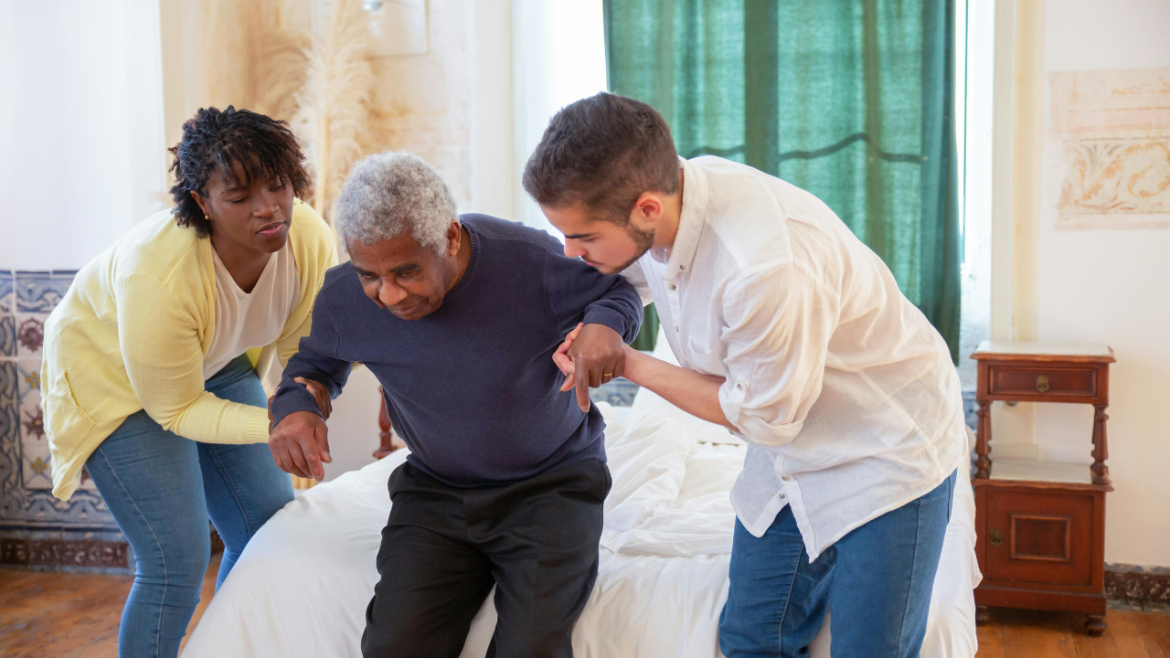How To Help A Senior Who Is Currently In Rehab
When a senior enters a rehabilitation facility, the experience can be overwhelming and sometimes frightening. Adjusting to a new environment while coping with physical or cognitive limitations can create feelings of frustration, anxiety, and isolation.
Even routine activities, like walking down a hallway or participating in therapy, can feel like monumental tasks. Family members often struggle with knowing how to best support their loved one without overstepping boundaries. Understanding the emotional and physical challenges is the first step in providing meaningful help, allowing seniors to feel seen, valued, and empowered during their recovery journey.
Building Emotional Support and Trust
One of the most crucial aspects of helping a senior in rehab is creating a sense of emotional safety. Seniors may feel discouraged when progress seems slow or when they are reminded of their vulnerabilities. Frequent communication, gentle encouragement, and patient listening can create a supportive environment.
Visiting regularly, sending thoughtful messages, or simply spending quiet moments together reinforces that the senior is not alone in their journey. Expressing empathy and acknowledging their frustrations validates their feelings while maintaining motivation, helping them stay engaged with the rehabilitation process even when setbacks occur.
Encouraging Active Participation in Therapy
Active participation in rehabilitation exercises is critical for recovery, yet seniors may resist due to pain, fatigue, or fear of failure. Offering encouragement without pressure allows them to engage at their own pace, while positive reinforcement celebrates even the smallest achievements.
Understanding the purpose of each exercise and how it contributes to regaining independence can motivate seniors to participate more fully. Collaborating with therapists to identify strategies tailored to the senior’s specific needs ensures that exercises remain both effective and manageable. Over time, consistent support fosters confidence and enhances their overall progress.
Focusing on Nutrition and Hydration
Proper nutrition and hydration are often overlooked but essential components of a senior’s recovery. Rehabilitation demands energy, and without adequate nourishment, progress can slow or complications may arise. Encouraging balanced meals, monitoring fluid intake, and collaborating with dietitians can ensure the senior receives the necessary nutrients to rebuild strength and resilience.
Highlighting the connection between food, energy, and recovery can help seniors make mindful choices, reinforcing their role in the healing process and empowering them to take an active part in their rehabilitation.
Maintaining Mental and Cognitive Health
Rehabilitation is not just a physical journey; cognitive and mental well-being are equally important. Boredom, isolation, or a lack of mental stimulation can negatively affect mood and motivation. Engaging seniors in conversation, encouraging participation in cognitive activities, or exploring hobbies they enjoy can reduce stress and create a sense of normalcy within the rehab environment.
Emotional and mental support strengthens their resilience, enabling them to face challenges with clarity and determination. Helping seniors maintain cognitive health also improves communication with caregivers and medical staff, enhancing the overall rehabilitation experience.
Coordinating with Healthcare Professionals
An often-overlooked element of supporting a senior in rehab is maintaining open communication with healthcare providers. Understanding treatment plans, medication schedules, and therapy goals ensures that family members can reinforce care strategies effectively.
Asking questions, observing progress, and reporting changes in behavior or health can significantly influence outcomes. By working collaboratively with the medical team, families become an extension of care, providing consistency and reassurance that supports both physical recovery and emotional stability.
Celebrating Progress and Milestones
Rehabilitation can be a long and sometimes discouraging process, making it vital to recognize and celebrate progress, no matter how small. Celebrating achievements builds confidence, reinforces positive behaviors, and motivates seniors to continue striving toward independence.
Whether it is walking a few extra steps, completing a difficult exercise, or regaining the ability to perform daily activities, acknowledgment fosters hope and strengthens the bond between the senior and their support network. Every milestone, big or small, is a reminder that perseverance and encouragement lead to meaningful recovery.
Conclusion
Helping a senior in rehab requires patience, understanding, and consistent support across emotional, physical, and cognitive dimensions. By building trust, encouraging participation, ensuring proper nutrition, maintaining mental health, coordinating with healthcare professionals, and celebrating progress, families can significantly enhance a senior’s rehabilitation experience.
These efforts not only accelerate recovery but also provide the emotional reassurance necessary for seniors to regain confidence and independence. Through compassionate guidance and dedicated involvement, families can help seniors navigate the challenges of rehab while fostering hope, resilience, and a renewed sense of self.

